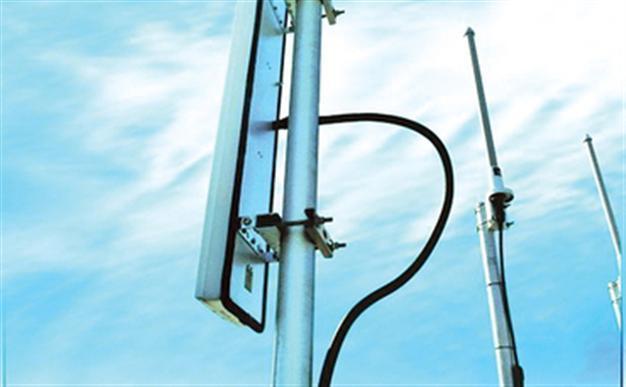Companies to launch 30,000 base stations for advanced 4G technologies in Turkey
Ahmet Can - ISTANBUL
 Some 30,000 new base stations need to be built in Turkey to adapt to the advanced 4G technologies, but it is a big unknown which authority will give the permission.
Some 30,000 new base stations need to be built in Turkey to adapt to the advanced 4G technologies, but it is a big unknown which authority will give the permission.There are around 100,000 base stations in the country right now, but more is needed for adaptation to the new advanced network, which will raise the existing mobile internet speed by 10-fold at least, according to sector representatives. In line with the deal, some of the existing base stations will also be renewed.
Turkey’s three existing mobile operators, Turkcell, Vodafone and Avea, have won the rights to the country’s advanced 4G network, dubbed 4.5G in Turkey, due to be established for a sum of more than 3.9 billion euros in the Aug. 26 tender held by the Information and Communication Technologies Authority (BTK).
The official transition period has started, but it is a bit uncertain who will give the authorization to open the new base stations, according to sector players.
“The 4.5G tender was held, but there are things to do. The permission authority for the establishment of base stations was the Ministry of Transportation until 2009, but it is no longer. There is not any clarification about who will give the permission now. Some municipalities claim they have the right, but they actually do not. The ministry is now working to eliminate these uncertainties,” said Vodafone Turkey CEO Gökhan Öğüt in a press meeting last week.
Some local governments have prevented the companies from launching new base stations, according to the head of the Telecommunications and Energy Services Consumer Rights and Sector Researches Association (TEDER), Serhat Özeren.
“The ministry has now been working to clarify the regulations. New base stations need to be established to get the 4.5G technologies online,” he said.
The BTK has been overseeing the operations of base stations in a strict manner. The electromagnetic fields of the base stations must be under a certain level in line with the BTK regulations.
Prof. Tunaya Kalkan said that the International Commission on Non-Ionizing Radiation Protection (ICNIRP) and the World Health Organization (WHO) has defined the upper limit for the base stations’ electromagnetic fields at 41 volts per meter, with anything below this level not harmful to health.
Kalkan said the limit is 10 volts per meter in Turkey.
















